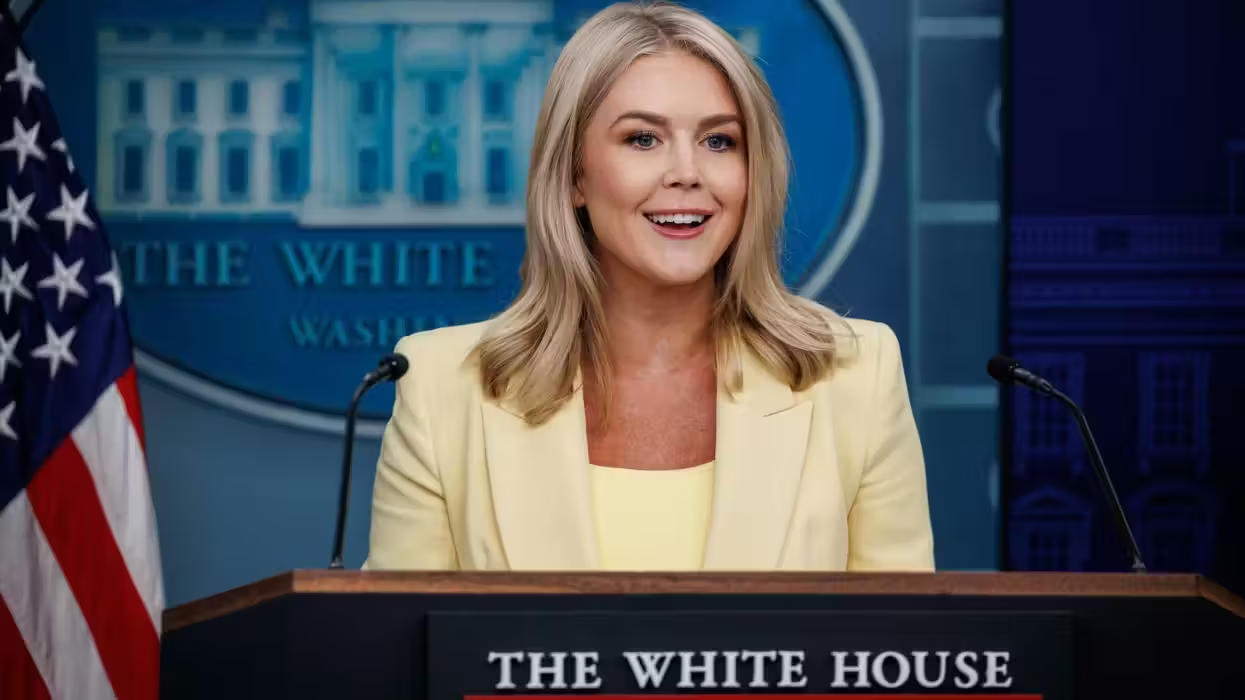In a New York Times article earlier this month detailing Saudi Arabia's hyper-controlling Islamic theocracy, journalist Ben Hubbard profiled Ahmed Qassim al-Ghamdi — a former "morals enforcer" for the national government.
For the majority of his adult life, Ghamdi was a devoted employee of Saudi Arabia's Commission for the Promotion of Virtue and the Prevention of Vice, often referred to abroad as the "religious police."
 In this December 2012 photo, some 200 Muslim clerics visit Saudi Labor Ministry demanding a ban on women's employment in lingerie shops. (Photo credit: aleqt.com via Al Arabiya)
In this December 2012 photo, some 200 Muslim clerics visit Saudi Labor Ministry demanding a ban on women's employment in lingerie shops. (Photo credit: aleqt.com via Al Arabiya)
As Hubbard describes it, the objective of the government organization is to shield the "Islamic kingdom from Westernization, secularism and anything but the most conservative Islamic practices." That could include normal law enforcement operations like cracking down on illegal drug dealers and bootleggers, but he said the bulk of what "the Commission" does involves enforcing the "puritanical public norms that set Saudi Arabia apart not only from the West, but from most of the Muslim world."
After years of working for the Commission, Ghamdi was tasked with monitoring the Islamic holy city of Mecca. It was there that the moral enforcer began to question the rules and restrictions of the Saudi government.
He turned to the Koran and the Hadith, Muslim holy texts, in search of answers, and made a shocking discovery: Many first generation Muslims, including the founding prophet Muhammad, did not observe many of the restrictions Ghamdi had been enforcing for years. For example, there had been plenty of ikhtilat, or "unauthorized mixing" of men and women, something Saudi clerics have long taught leads to fornication, adultery and "full-blown societal collapse."
He was compelled to speak out in favor of what he found to be "true Islam," something vastly more liberal than Wahhabism, the ultra-strict brand of Islam founded in the 18th century and maintained by most modern Saudi Muslims.
Ghamdi wrote articles and appeared on television to discuss his findings and noted the difference between Islam as a religion and the Arabian cultural practices that many Saudis have mistaken for faith.
From the Times:
There was no need to close shops for prayer, he said, nor to bar women from driving, as Saudi Arabia does. At the time of the Prophet, women rode around on camels, which he said was far more provocative than veiled women piloting S.U.V.s.
He even said that while women should conceal their bodies, they needed to cover their faces only if they chose to do so. And to demonstrate the depth of his own conviction, Mr. Ghamdi went on television with his wife, Jawahir, who smiled to the camera, her face bare and adorned with a dusting of makeup.
Hubbard compared Ghamdi's outspokenness to "a bomb inside the kingdom’s religious establishment," threatening the social structure that secured the virtually unlimited moral authority of the sheikhs, or Islamic religious scholars.
"He threatened their control," Hubbard wrote.
 Muslim worshippers gather at the Prophet Mohammed mosque for morning Eid al-Fitr prayers on July 6, 2016 marking the end of the holy month of Ramadan. (Stringer/AFP/Getty Images)
Muslim worshippers gather at the Prophet Mohammed mosque for morning Eid al-Fitr prayers on July 6, 2016 marking the end of the holy month of Ramadan. (Stringer/AFP/Getty Images)
As a result of his efforts, Ghamdi was shunned by his colleagues. He received angry phone calls and anonymous death threats on Twitter. High-profile sheikhs denounced him in the media as "an ignorant upstart who should be punished, tried — and even tortured."
"Many attacked his religious credentials, saying he was not really a sheikh — a dubious accusation since there is no standard qualification to be one," Hubbard continued.
“There is no doubt that this man is bad,” Sheikh Saleh al-Luheidan, a member of the top clerical body reportedly said of Ghamdi. “It is necessary for the state to assign someone to summon and torture him.”
"The first irony of Mr. Ghamdi’s situation is that many Saudis, including members of the royal family and even important clerics, agree with him, although mostly in private," Hubbard noted. "And public mixing of the sexes in some places — hospitals, conferences and in Mecca during the pilgrimage — is common. In some Saudi cities it is not uncommon to see women’s faces, or even their hair."
But the firmly implanted religious establishment is not ready to loosen its grip. So for now, someone like Ghamdi is forced out of the picture.
"These days, he keeps a low profile because he still gets insults when he appears in public," Hubbard wrote of Ghamdi. "He has no job, but publishes regular newspaper columns, mostly abroad."

 In this December 2012 photo, some 200 Muslim clerics visit Saudi Labor Ministry demanding a ban on women's employment in lingerie shops. (Photo credit: aleqt.com via Al Arabiya)
In this December 2012 photo, some 200 Muslim clerics visit Saudi Labor Ministry demanding a ban on women's employment in lingerie shops. (Photo credit: aleqt.com via Al Arabiya)
 Muslim worshippers gather at the Prophet Mohammed mosque for morning Eid al-Fitr prayers on July 6, 2016 marking the end of the holy month of Ramadan. (Stringer/AFP/Getty Images)
Muslim worshippers gather at the Prophet Mohammed mosque for morning Eid al-Fitr prayers on July 6, 2016 marking the end of the holy month of Ramadan. (Stringer/AFP/Getty Images)






